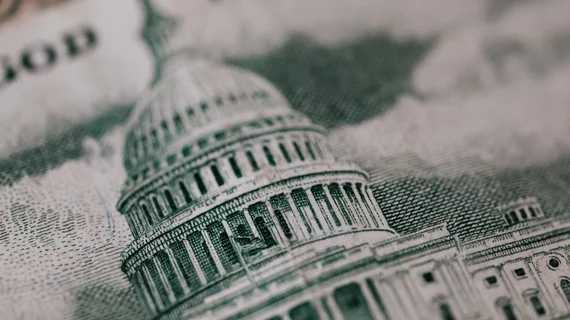Physician congressman hopeful that radiologist Medicare pay fix will advance soon
A physician member of the U.S. House is hopeful that his proposal to protect radiologists and other physicians from a Medicare pay cut will soon get a hearing.
Rep. Greg Murphy, MD, R-N.C., first introduced the Preserving Seniors' Access to Physicians Act in December. The bipartisan bill would counteract a nearly 3.4% cut to the Medicare conversion factor that took effect Jan. 1, zeroing out any decrease but not increasing physician pay. In a recent interview, the practicing surgeon said he hopes the House will take up the legislation soon.
“We're working through the machinations of trying to get this on the suspension calendar for next week, which means two-thirds of the House has to agree with it. It is my belief that this will happen,” he told MedPage Today on Jan. 12.
Other potential legislative remedies are also floating around Congress, the report noted. Those include a bill in the House Energy & Commerce Committee that would add a 1.25% increase, which is still “effectively a cut of almost 2%,” Murphy said. He’s pushing back against such proposals in favor of a full Medicare payment adjustment.
“My thought is, why are we cutting doctors’ [pay] at all? There's no other profession in this entire nation that expects to be cut every year,” he told the website. “And so as far as I'm concerned, those [other] bills, while they're nice, they don't go nearly far enough in just keeping those who actually take care of patients whole.”
Imaging advocates praised news of the Preserving Seniors' Access to Physicians Act potentially moving forward. Industry watchers have discussed the possibility of any legislative change applying retroactively to all claims submitted in 2024, which could complicate matters for the field.
“Time to address these substantial cuts is of the essence, as holding claims or reprocessing has a very real financial cost to providers of all sizes across the country,” Radiology Business Management Association President Christopher "Kit" Crancer said by email. “If policymakers are concerned about consolidation and maintaining patient access to care, then advancing this legislation providing predictability and sustainability should be an immediate priority.”
Meanwhile, imaging groups such as the American Society of Nuclear Cardiology have issued recent “calls to action,” asking physicians to contact their members of Congress. ASNC noted that lawmakers are facing a Jan. 19 deadline to pass a spending bill and avoid a partial government shutdown. If they fail to promptly cancel the pay cut, Medicare physician fees will be reduced by 3.4% for the remainder of 2024.
“ASNC is urging all U.S. members to contact Congress. No matter where you deliver care, ask your lawmakers to include H.R. 6683 in a fiscal year 2024 spending package,” the society said Jan. 12. “The important thing is for Congress to hear from many individual physicians and practices from all across the U.S. now,” it added later.

